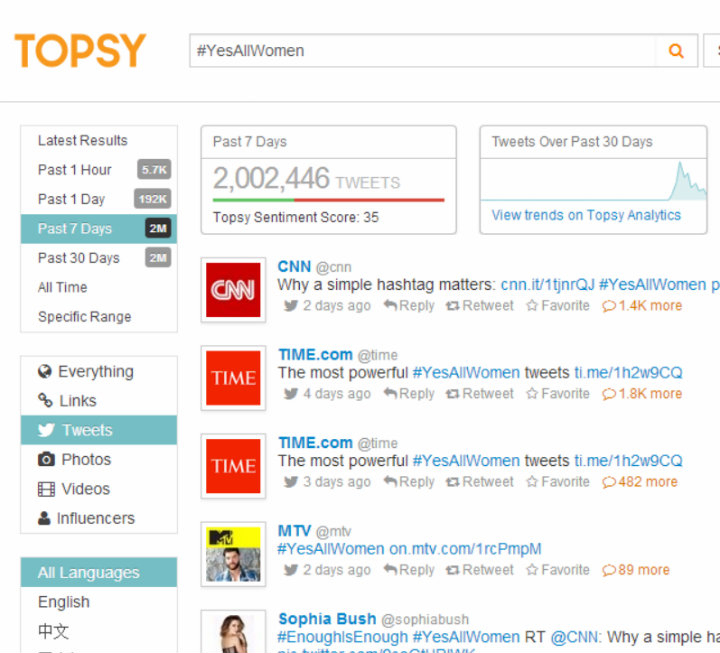With social media technology changing daily, it can sometimes be challenging to keep up with the latest platforms and their newest features, and the seemingly endless stream of content, information, and campaigns.
Recently as we’ve been preparing for the Social Media for Social Change course, we’ve been focusing on the power and limits of “hashtag activism” by examining examples such as #BringBackOurGirls and #YesAllWomen.
Check out the Montreal-based CJAD news radio talkshow interview from last week featuring TechChange’s Director of Marketing, Nancy Ngo, on hashtag activism here:
Hashtags aren’t the only way social media users are advocating for causes. We’ll be analyzing a variety of campaigns and social change movements that have used various social media tools in different ways in our second round of our Social Media for Social Change online course, which begins on Monday, June 16. A very dynamic group of guest expert speakers will join us from organizations such as Change.org, the Resolve LRA Crisis Initiative, Uber, and more. Lawrence Grodeska from Change.org who will share how Change.org has revolutionized online petitions in campaigns such as advocating justice for Trayvon Martin. Resolve LRA Crisis Initiative’s Michael Poffenberger will share his experiences from the Kony 2012 campaign to capture Joseph Kony and draw comparisons with the recent BringBackOurGirls campaign. Alex Priest of Uber will discuss ways that Uber utilizes social media in optimizing urban logistics.
Several participants from many countries including Czech Republic, Jordan, Mexico, New Zealand, Thailand, and across the U.S. have already enrolled in this round of this course, representing organizations such as World Bank Group, USAID, ICRC, World Green Building Council, Oxfam, AARP International, Cornell University, Abt Associates, Chemonics International, Federal Reserve Bank of Kansas City, and many more. All of these participants will be bringing their own perspectives as both social media users and social change advocates for their respective organizations and initiatives.
What’s your take on hashtag activism and social media advocacy? Do you agree with Nancy? Join the conversation with these social media experts and participants across the world to learn more about social media’s role in catalyzing social change. Enroll now in our Social Media for Social Change course here.

